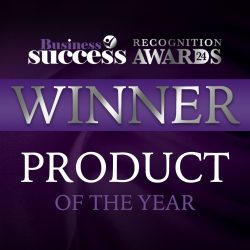On 16 October, Iceland Foods’ executive chairman, Richard Walker, appeared at the General Court of the European Union in Luxembourg to continue the supermarket’s fight to keep its trade mark protection for the word “Iceland” within the EU. This is the latest stage in an eight-year-long legal battle with the Icelandic government, following the EU Intellectual Property Office’s decision in December 2022 to uphold a previous ruling that stripped the retailer of its EU trade mark rights.
So, what’s the issue? The supermarket first secured its EU trade mark in 2014. However, things took a turn in 2016 when the Icelandic government challenged it, arguing that Iceland Foods had tried to prevent Icelandic producers from using the name of their country to market their goods within the EU. This, of course, creates a problem. A name that represents an entire country is being locked up by one company for its own commercial use. Should a company be allowed to monopolise a geographical name like “Iceland”?
The 2022 ruling doesn’t stop Iceland Foods from operating in the EU or selling its products, but it does prevent the company from monopolising the use of the word “Iceland” across the bloc. It’s a significant limitation, especially for a company that exports to many EU countries through its wholesale arm and even runs a store in Reykjavik, Iceland’s capital.
Despite the ruling, Iceland Foods has chosen to appeal, though it hasn’t disclosed the grounds for this latest challenge. Legal experts suggest that this new stage in the dispute could take “a year or so” to resolve. Even if Iceland Foods loses, it still has one more possible avenue for appeal—the Court of Justice of the European Union.
This trade mark battle has captured attention not only because of its legal complexity but also because of its quirky nature: a supermarket named Iceland being challenged by the country of Iceland. While it may sound like a “fun headline,” as Walker has noted in social media posts, the issue is no laughing matter for the business. He insists that the brand’s name refers to the “land of ice” rather than the country itself and maintains that Iceland Foods has never tried to stop Icelandic businesses from using the word “Iceland” to describe their products.
But as this case shows, the world of intellectual property can be a minefield. Businesses must be careful about how they protect their brands, particularly when it comes to geographical names. Iceland Foods’ trade mark battle demonstrates how even well-established brands can find themselves facing lengthy and costly disputes when those protections clash with the rights of others.
Protecting your intellectual property is essential—but it’s also crucial to ensure that your IP strategy won’t lead to unintended consequences. Consulting with IP experts, like our team at National Business Register, can help you avoid these pitfalls and ensure your business is protected without infringing on the rights of others.
Interestingly, this isn’t Iceland Foods’ only recent brush with intellectual property disputes. The supermarket also recently threatened legal action against competitors who copied its popular prawn ring during the Christmas season, claiming its iconic status. Some have dismissed the move as a marketing ploy, but it serves as another example of the challenges businesses face when it comes to defending their brand.
If you’re a business owner, take the Iceland Foods case as a cautionary tale. Trade marks are powerful tools, but navigating the legal landscape can be tricky. If you don’t want your business to be embroiled in a costly dispute, seek expert advice. Our team at National Business Register is here to help you protect your intellectual property, ensuring your brand is safeguarded while avoiding unnecessary legal battles. You can contact us by emailing info@nbrg.co.uk or calling 0800 069 9090.


